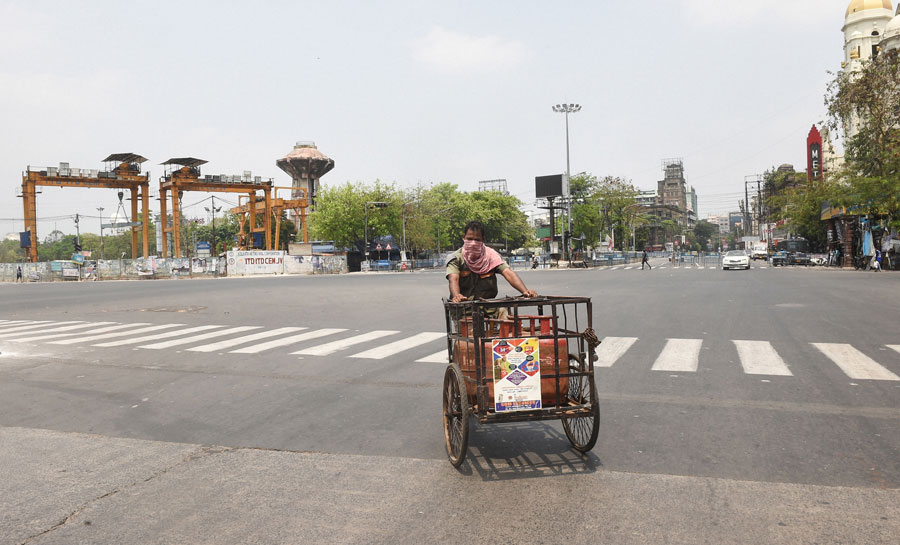Reluctance to report to doctors primary symptoms of Covid-19 because of apprehensions of getting quarantined and fear of being ostracised are two major challenges in the state’s battle against the coronavirus, senior health officials have said.
The government is also worried about the alleged fear of the disease among some healthcare providers, including doctors, as it could seriously affect treatment of coronavirus patients if a large number of people start getting admitted to hospitals.
“We have evidence of many people, especially in rural areas, not visiting the fever clinics at government hospitals even though they have fever, cough or cold. This makes early detection difficult,” a senior health official said on Sunday. “If we can identify patients when they are manifesting mild symptoms, then the management of the disease becomes easier. Also it may help check the spread of the disease,” he said.
The Telegraph takes a look at the challenges:
Fear of quarantine: Many people are scared of being sent to quarantine centres, public health experts said.
“They are afraid of leaving their own homes and staying in an unfamiliar place. Also, they are scared of possible medical interventions. A large section of the population needs to be made aware that quarantine centres are not prions,” said a public health expert working with the state government.
Fear of ostracisation: Another fear is social stigma. Across India, there have been reports of neighbours not allowing health workers and suspected coronavirus patients to stay in their localities. Chief minister Mamata Banerjee has also appealed several times to people not to ostracise anyone with coronavirus symptoms or those treating such patients.
The problem is more acute in the suburbs and rural areas, videoconferences with district administrations and health officials and visits by members of the health task force formed by chief minister Mamata Banerjee have revealed.
“We were trying to track down the contacts of a person who had tested positive for Covid-19. After about four days, we traced one person who had come in direct contact with that patient. We found a family member of this contact had been suffering from fever for three days but she had not gone to the hospital. Instead, she was getting treated by a quack,” said a health official.
Accredited social health activists (ASHA) and auxiliary nurse midwifery (ANM) workers have been put on surveillance duty in the districts.
For every 1,000 people, there is one ASHA worker and for every 5,000-6,000 people, there is one ANM worker, health officials said. “So, it’s not practically possible to check the temperature of each and every person. The ASHA and ANM workers can only ask if anyone in the house has fever,” a health official said.
Another problem, he said, was that an ASHA worker can visit a household once a week. If the day after the visit, someone has fever, then he or she needs to report it.
Fear among health workers: A large section of health workers, including doctors, are afraid of being infected and also wary of social stigma.
“We received reports that health workers at a Covid-19 designated hospital in Calcutta were just placing food from a distance for patients in isolation. This makes a patient feel completely left out by society,” said an official.
A crucial part of coronavirus treatment is checking the vital parameters of a patient. “If doctors and nurses are reluctant to go near a patient, surveillance will not be proper,” said the official. “Reports of doctors and nurses getting affected has also spread panic. But we are motivating them.”










